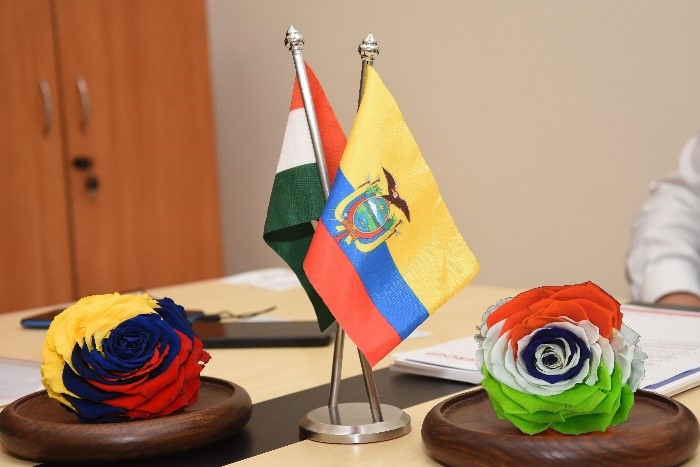Free Courses Sale ends Soon, Get It Now


Free Courses Sale ends Soon, Get It Now



Disclaimer: Copyright infringement not intended.
Context
Benefit:
Employment Generation Potential:
Atmanirbhar Bharat:
CDSCO:
India-Ecuador Relations: A Comprehensive Overview
Diplomatic Ties:
Political Relations:
Economic Collaboration:
Key Agreements:
Science and Technology:
Educational and Cultural Ties:
Renewable Energy:
Development Cooperation:
Consular Cooperation:
Challenges and Opportunities:
Geopolitical Significance:
Conclusion:
Ecuador: A Brief Overview for UPSC Prelims
Geographical Location:
Capital and Major Cities:
Official Language:
Geographical Features:
Galápagos Islands:
|
PRACTICE QUESTION Q. Discuss the dynamics of India-Ecuador relations, emphasizing key collaborative areas, recent agreements, and geopolitical significance. Evaluate challenges and opportunities in this bilateral partnership, providing illustrative examples. Highlight the role of India and Ecuador in South-South cooperation and sustainable development. |
© 2024 iasgyan. All right reserved